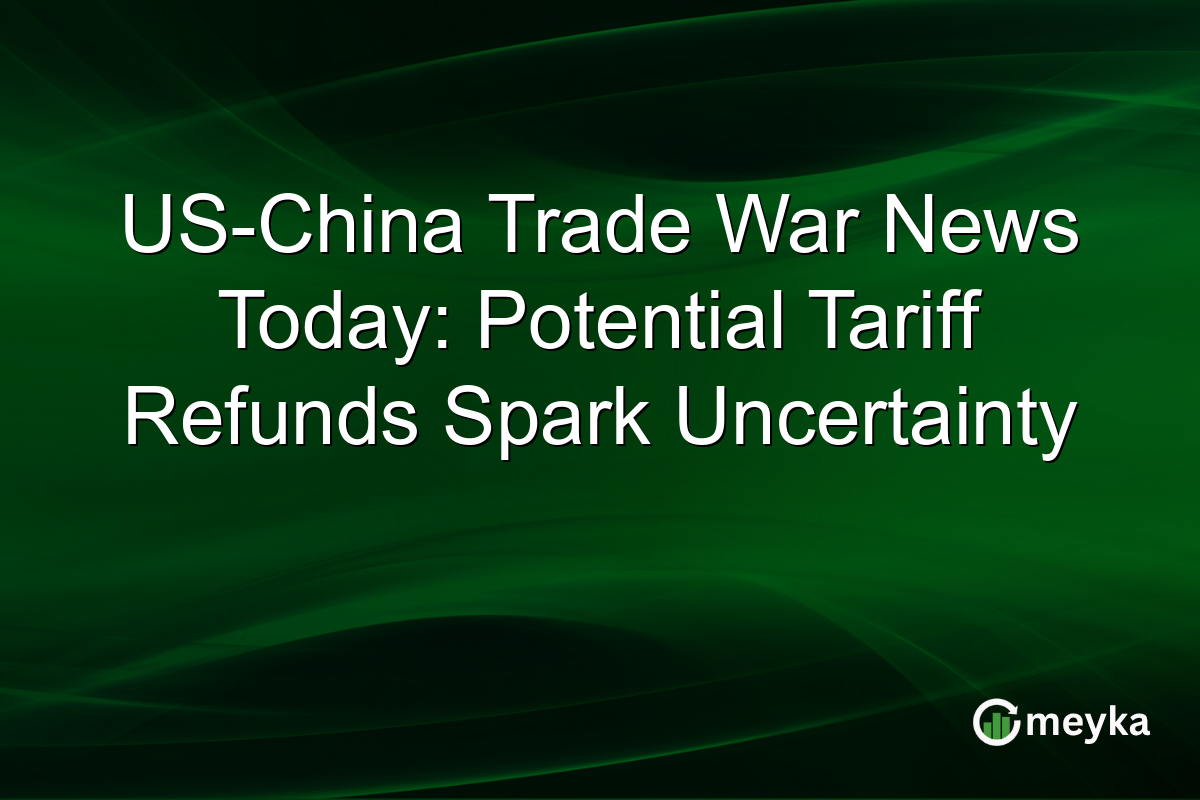US-China Trade War News Today: Potential Tariff Refunds Spark Uncertainty
On November 22, the US-China trade tariffs issue took a potential turn with talks of tariff refunds gaining traction. The US Supreme Court is expected to make crucial decisions that might authorize these refunds, significantly impacting economic relations and corporate strategies. This development raises questions about how such refunds could affect trade dynamics and future negotiations.
Continue Reading on Meyka
This article is available in full on our main platform. Get access to complete analysis, stock insights, and more.
Read Full Article →





